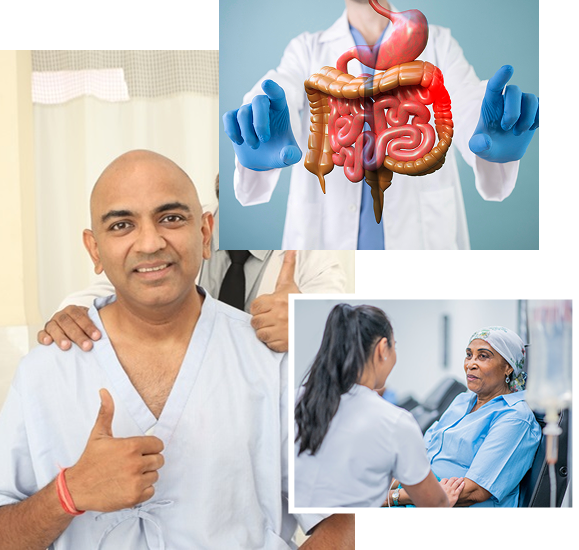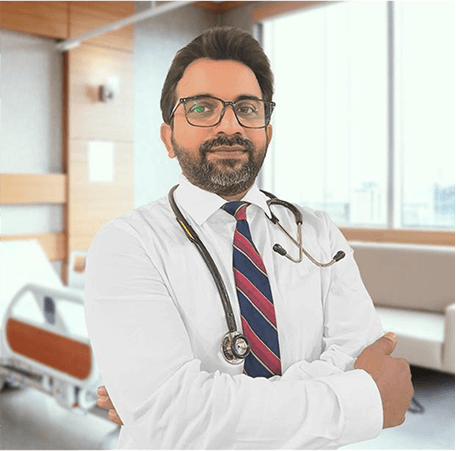
Advanced Care for Colon & Rectal Cancer
The Colon & Rectal Cancer Clinic offers specialized diagnosis, treatment, and post-care for cancers affecting the colon, rectum, and anus. Our approach focuses on early detection through advanced screening methods, ensuring timely intervention for better outcomes. We utilize cutting-edge imaging, minimally invasive surgical techniques, and targeted therapies to manage each case with precision.
From initial consultation to rehabilitation, our team works closely with patients, providing compassionate, evidence-based care. Regular follow-ups and lifestyle guidance are part of our commitment to long-term wellness. We prioritize patient comfort while aiming for the best possible quality of life during and after treatment.
Specialized Cancer Treatments

Expertise in Colon & Rectal Cancer Treatment
Dr. Joy Abraham brings over 16 years of surgical expertise in managing complex colon and rectal cancers. At Excel Hospital’s Colon & Rectal Cancer Clinic, he specializes in advanced diagnostic evaluations and precision-driven surgical interventions. Trained at premier institutions like SGPGI and Apollo Delhi, Dr. Abraham is adept at minimally invasive laparoscopic resections and oncological surgeries, ensuring faster recovery and optimal outcomes. His patient-centric philosophy focuses on compassionate, personalized care, multidisciplinary planning, and the latest cancer treatment protocols to maximize success rates and improve patients’ quality of life.


